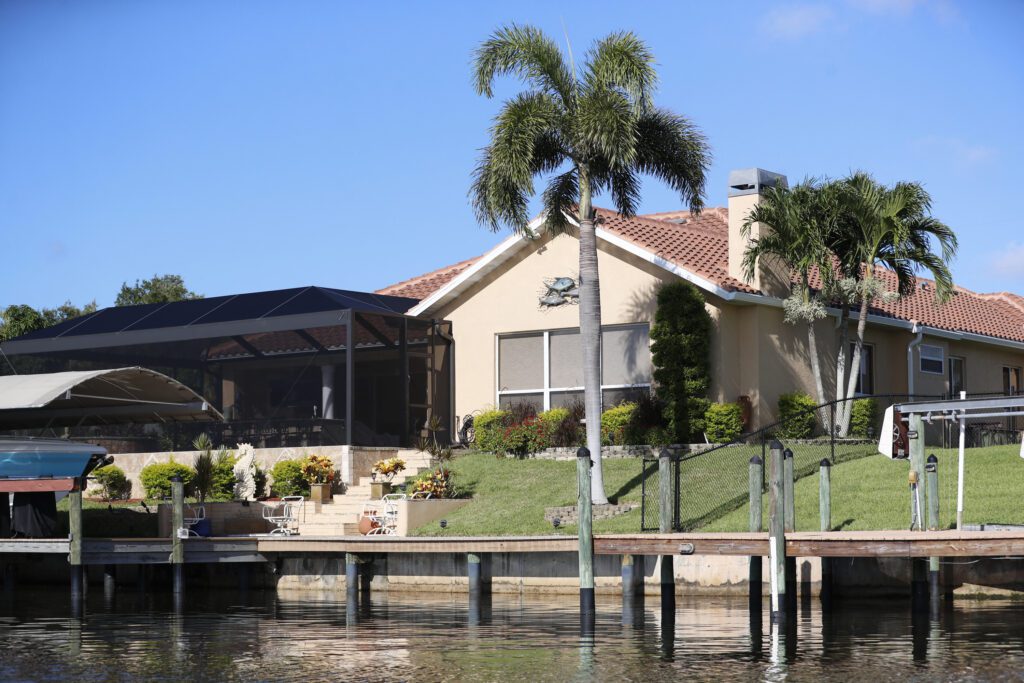Cape Coral Housing Market Declines: What Buyers and Investors Need to Know in 2025
Cape Coral, Florida—once at the heart of the 2008 subprime mortgage crisis—is experiencing a significant downturn in its housing market. This vibrant city, known for its affordability and waterfront charm, has seen home prices plummet sharply, making it one of the most affected real estate markets in the U.S. With median home values dropping steadily since 2023, what’s driving this change, and what can buyers and investors expect moving forward?
Cape Coral Housing Market Trends: A Rapid Rise Followed by a Sharp Decline
During the COVID-19 pandemic, Cape Coral witnessed a housing boom fueled by an influx of out-of-state buyers seeking affordable homes in Florida’s sunny climate. The median home price nearly doubled in just two years:
- May 2020: $239,020
- May 2022: $436,475
This surge was largely driven by limited inventory and high demand, with many buyers competing for homes.
However, the market started to correct in 2023:
| Date | Median Home Price | Year-over-Year Change |
|---|---|---|
| May 2023 | $413,245 | -5.3% |
| May 2024 | $391,200 | -5.3% |
| May 2025 | $361,250 | -7.7% |
According to Homes.com, Cape Coral metropolitan area home prices fell 11% over two years ending May 2025—the steepest decline among all U.S. metro areas.
Why Are Home Prices Falling in Cape Coral?
Several intertwined factors have created a perfect storm affecting Cape Coral’s housing market:
1. Oversupply of Homes
There’s a clear imbalance between sellers and buyers. Parcl Labs reports a record surplus of 10,049 homes in Cape Coral—a 525% increase since 2022—with a low absorption rate of 0.268, well below the U.S. average of 0.423.
2. Increasing Price Reductions
Price cut activity in Cape Coral has soared:
- 55.35% of listings have reduced prices
- U.S. average for price reductions is approximately 34%
This trend indicates sellers are eager to attract buyers amid declining demand.
3. National Inventory and Affordability Issues
- Nationwide, for-sale homes increased by 16.2% year-over-year in May 2025, totaling over 2 million listings.
- Florida saw a 14.2% rise in homes for sale, with 234,288 listings, including 45,771 new homes.
- High mortgage rates (expected to hover between 6% and 7% through 2026) and affordability challenges are discouraging buyers.
4. Slowed Migration and Return-to-Office Trends
The pandemic migration surge to Florida has slowed down partly due to:
- Return-to-office mandates in other states reducing the remote work advantage
- Economic uncertainty at a national level
5. Natural Disasters Impact
Cape Coral has been heavily impacted by natural events:
- Hurricane Ian in September 2022, followed by additional storms and flooding, has slowed recovery.
- Growing risk of natural disasters has increased home insurance costs significantly—averaging $7,679 annually, much higher than the national average (MoneyGeek Home Insurance Data).
6. Condo Market Pressures
After the 2021 Surfside condominium tragedy, new regulations require condo associations to perform rigorous inspections and fund repairs. This has resulted in:
- Surge of condo listings as owners attempt to avoid costly fees
- Many units remaining unsold due to buyer hesitancy over potential risks
Comparing Cape Coral’s Current Market to the 2008 Crisis
Cape Coral earned the nickname "ground zero" for the subprime mortgage collapse of 2008, plagued by speculative buying and poor mortgage practices.
But today’s market differs significantly:
- The downturn is driven by high mortgage rates, increased supply, and national economic uncertainty, rather than risky lending.
- Cape Coral still leads Florida in foreclosures, with nearly 11,000 homes undergoing foreclosure (about 1 in 31 households), but expert analysis suggests these conditions won’t lead to a repeat crisis.
Marco Santarelli from Norada Real Estate Investment emphasizes:
“While the ghosts of 2008 are stirring, today’s market correction reflects broader economic factors, not the subprime mortgage bubble.”
What Does the Future Hold for Cape Coral Real Estate?
Potential Continued Price Adjustments
Home prices may continue to soften in the near term due to persistent high mortgage rates and a surplus of available properties.
Opportunities for Buyers and Investors
Despite current challenges, Cape Coral remains attractive because of:
- Its natural beauty, waterfront access, and young population
- Relatively affordable prices compared to nearby Florida markets such as Fort Myers or Naples
- Emerging real estate opportunities for value-conscious buyers and savvy investors
Key Takeaway
While Cape Coral’s housing market faces a correction phase, the city’s long-term prospects remain positive, particularly for those leveraging the current price dips.
Summary: Why Cape Coral’s Housing Market Is a Critical Watch in 2025
- Rapid home price increase during the pandemic led to an overheated market
- Since 2023, prices have declined by nearly 20% cumulatively
- Oversupply and buyer hesitation driven by high mortgage rates, insurance costs, and natural disaster risks
- Condo segment pressured by post-tragedy regulation
- Despite these challenges, Cape Coral’s real estate remains a haven for buyers seeking affordability and potential growth
For detailed market updates and property listings in Cape Coral, visit Redfin Cape Coral Market Trends.
Related Resources
- Parcl Labs Housing Data
- MoneyGeek Homeowners Insurance Costs
- Latest U.S. Mortgage Rate Forecasts
- Impact of Hurricane Ian on Southwest Florida
Cape Coral remains a compelling story of resilience, adaptation, and opportunity in today’s evolving housing market landscape. Whether you’re a buyer, seller, or investor, understanding these factors is essential to making informed decisions throughout 2025.


